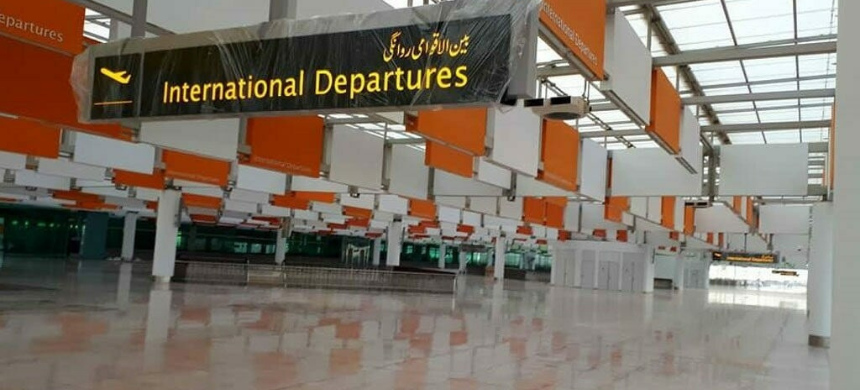Ahsan Iqbal, the Minister for Planning, Development, and Special Initiatives, chaired a progress review meeting with the Public-Private Partnership Authority (P3A), where he instructed the Aviation Ministry to expedite the outsourcing of operations for Islamabad, Lahore, and Karachi airports.
The meeting focused on thirteen important public interest projects assigned by the prime minister. Representatives from various ministries shared updates on their respective projects. Minister Iqbal stressed the need for the swift completion of the privatization process for these three major airports.
The aviation joint secretary updated the meeting on the progress of airport outsourcing. Bids for Islamabad International Airport are currently under review by the Pakistan Airports Authority’s Technical Evaluation Committee, while due diligence reports for Lahore and Karachi airports have been submitted to P3A.
Read More: Massive Raid Conducted at Islamabad Airport
It was also noted that the Civil Aviation Authority (CAA) has halted expansion work at Lahore airport, as directed by the prime minister. The CAA is in discussions with a company based in the United Arab Emirates, with a meeting scheduled soon.
In a separate discussion, the minister tasked the Special Investment Facilitation Council (SIFC) secretary with preparing a targeted agenda to review the timelines for projects worth Rs. 29 billion, signed with investment-friendly countries such as Saudi Arabia, Qatar, Kuwait, and Azerbaijan.
Minister Iqbal emphasized the importance of attracting foreign investment through the development of commercially viable projects aimed at expanding exports, which he believes will significantly benefit Pakistan. He stressed that the strategic goals of the SIFC must be fully realized.
Improving cargo efficiency at Karachi Port was another key issue discussed. Minister Iqbal instructed the Ministry of Maritime Affairs to organize a meeting with Karachi Port Trust officials. He highlighted the port’s operational challenges, particularly the limited seven-hour window for cargo movement, which requires strict truck scheduling.











